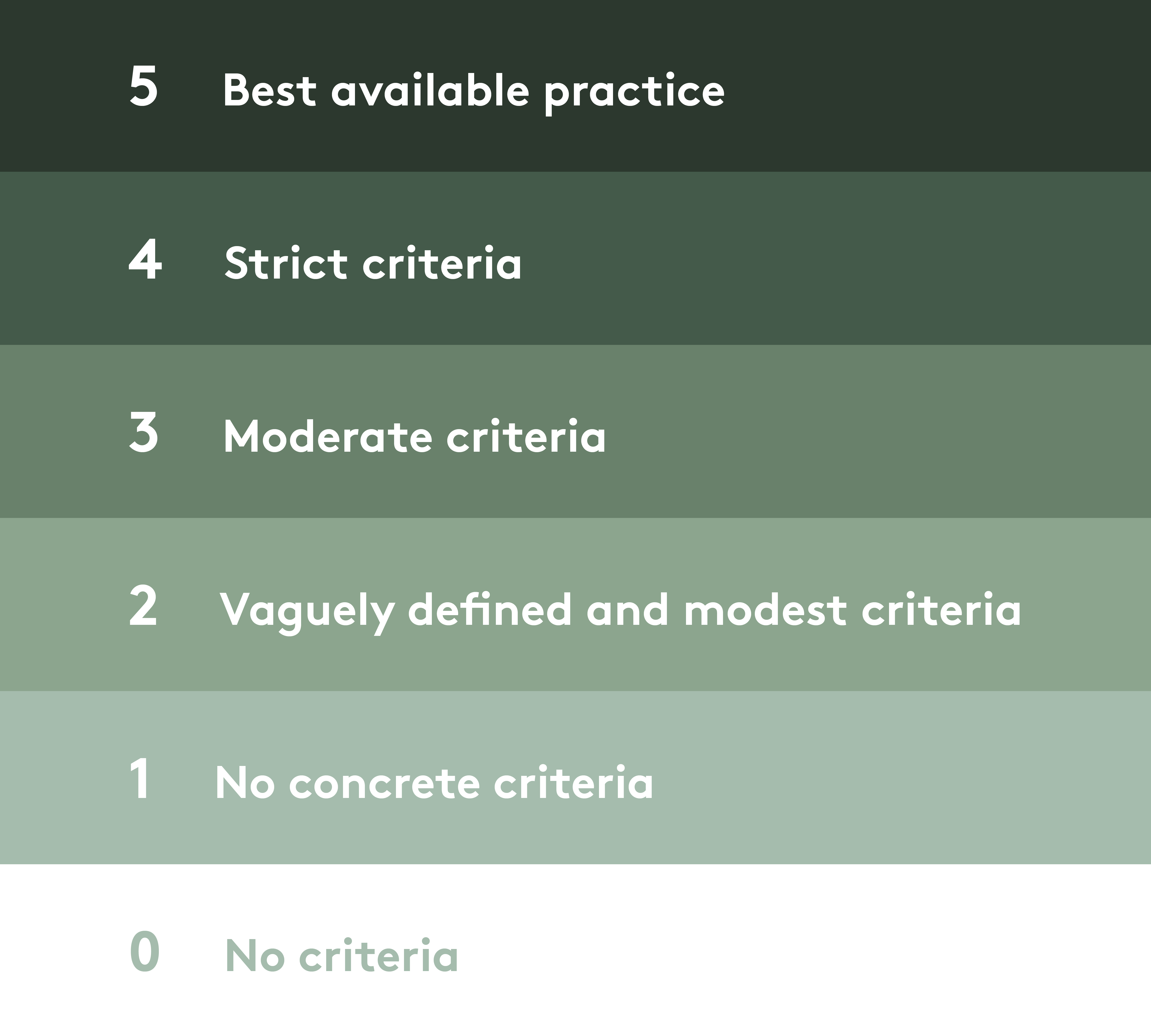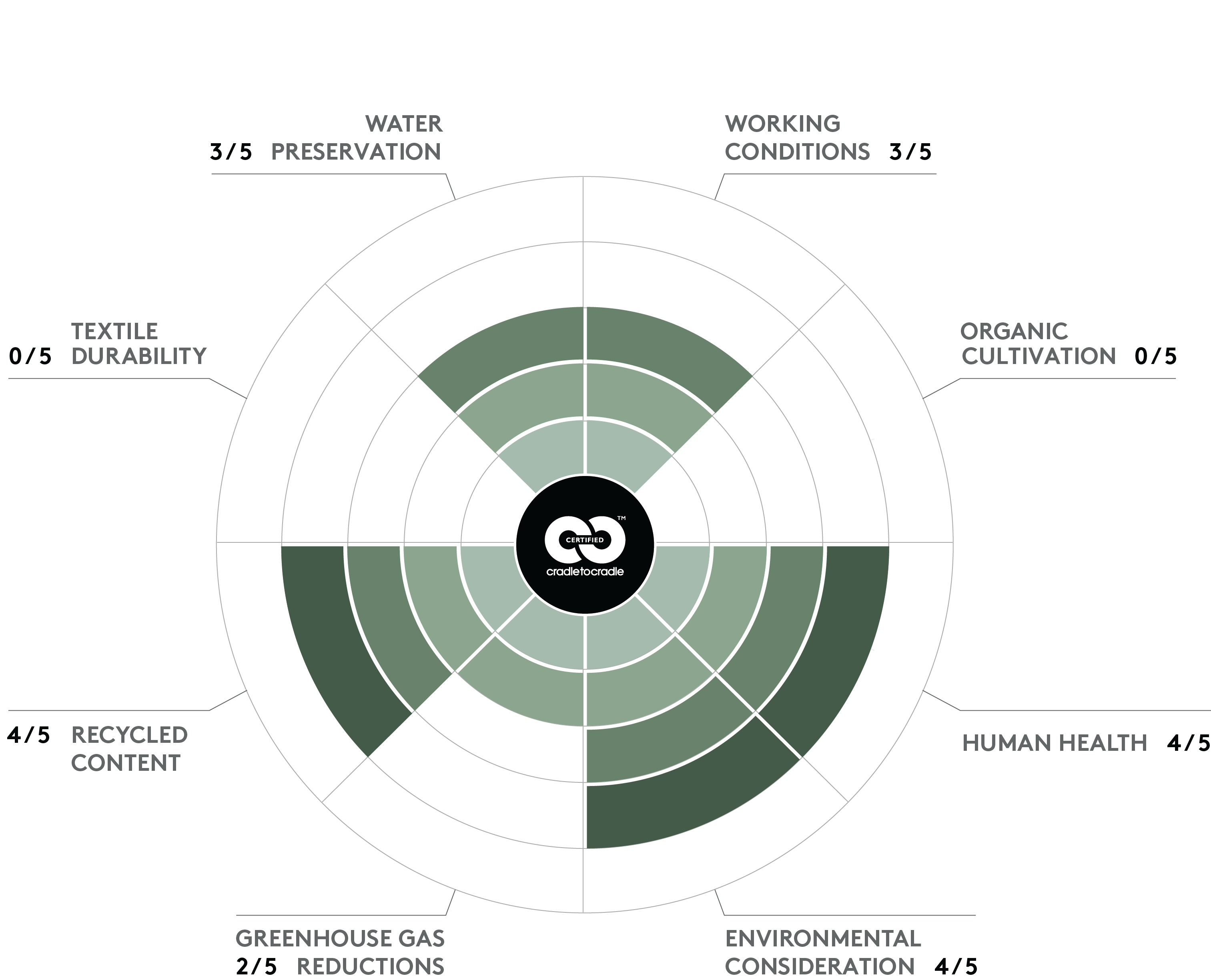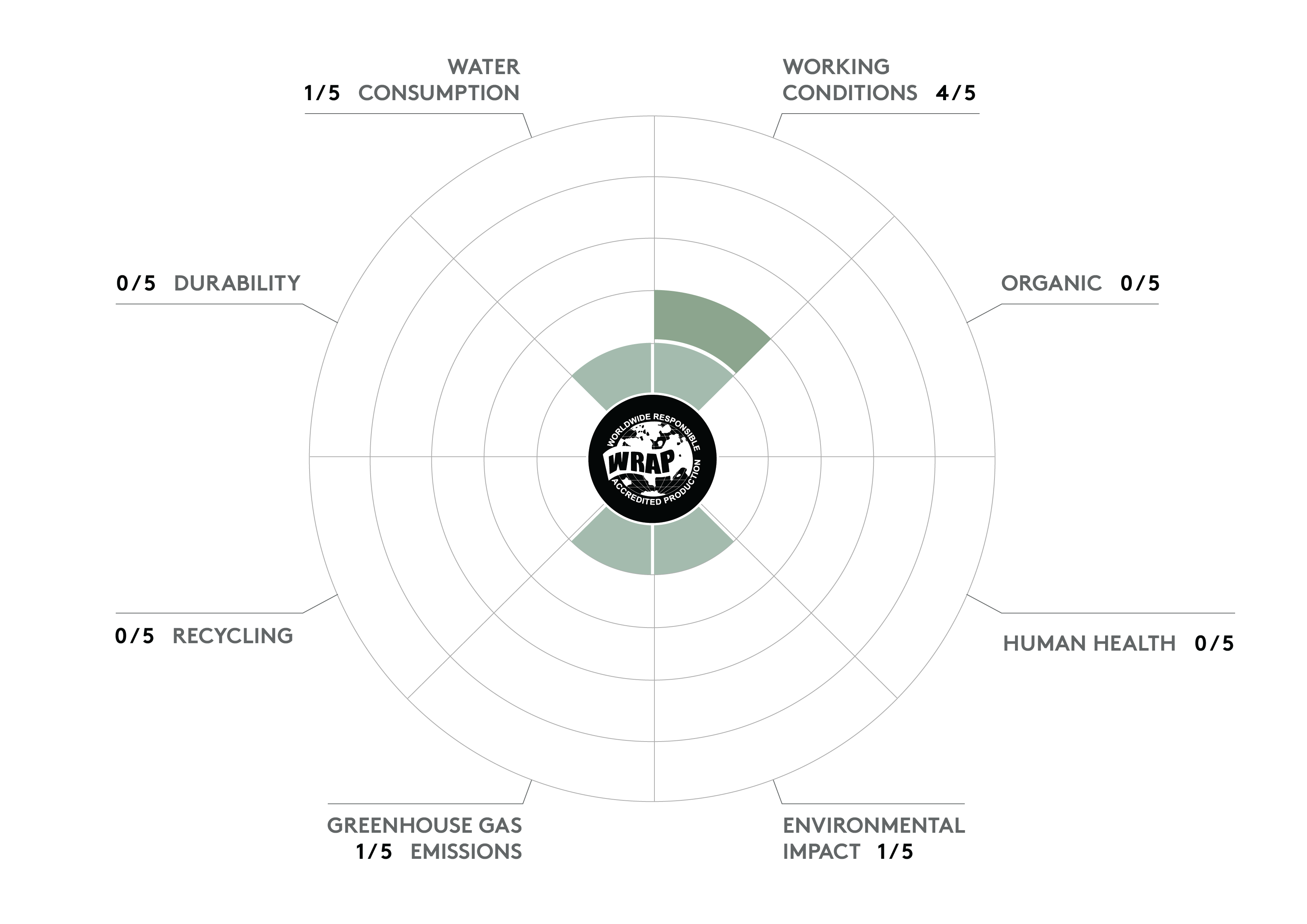CERTIFICATION TOOL
This tool provides you with an overview and rating of certifications in the textile industry.
Welcome!
Welcome to the first edition of our Certification Tool (1.0). It is developed to help you get an overview of key certifications in the textile industry and to understand their performance in different categories. The tool will be updated continuously, meaning that we will extend this version by adding new features and new certifications that you will get access to in the near future. We’ll amongst others add: STeP by OEKO-TEX, Bluesign, BSCI, BCI, OCS100, OCS Blended, Sedex, Fairtrade Textile Standard.
The textile industry is complex, and how environmental impacts are meassured vary depending on the perspective. Likewise, we are aware that this certification guide also highlights certain aspects, like adding an entire category for textile durability. If you have any inputs, discussion points, or questions, please use the formula in the bottom of the page to write us a messsage.
How to use the tool
Compare the certifications in the table below, to see which ones sufficiently address the categories most important to you.
Click on a logo to see a graphic of how a specific certification is rated according to the respective categories, along with more information about the certification and our assessment.
| Certifications | Working conditions | Organic cultivation | Environmental consideration | Water preservation | Greenhouse gas reductions | Recycled content | Textile durability | Human health |
|---|

OUR SCORES
We have rated the criteria of each certificate on a scale from 1 to 5 within 8 categories. This is to give you an overview of each certificate’s focus area and how well they perform.
KEY FOCUS
– Circular economy
– Environmental consideration
The Cradle to Cradle certification builds upon the philosophy of healthy materials, which can and should stay inside a technological or biological loop in which nothing goes to waste. The certification is intended for safer and more sustainable products in a circular economy. A product is assigned an achievement level (Bronze, Silver, Gold, Platinum) for each of the categories: Material health, Product circularity, Clean air and climate, Water and soil stewardship, Social fairness. A product’s lowest category achievement decides its overall certification level. The criteria are verified by assessors, third-party audits and laboratory testing.
OUR ASSESSMENT
The Cradle to Cradle philosophy has a huge potential to develop a circular flow in the industry. Ambitious ways of running a business need to be put in place in order to achieve the gold and platinum levels. The approach of the scheme is to have a low threshold for entry, and mandatory improvement. This allows for more brands to enter, but it can make it difficult for consumers to understand which criteria a product fulfils.
BRONZE

SILVER

GOLD

PLATINUM

KEY FOCUS
– Environmental consideration
– Human health
The EU Ecolabel is a label established by the EU Commission and enforced by national bodies. It looks at the entire life-cycle of the product in order to restrict harmful chemical inputs and deter toxic outputs from entering the natural environment. The scheme is verified by third-party auditing, safety data sheets and laboratory testing.
OUR ASSESSMENT
The EU Ecolabel is a reliable label that makes sure that the worst kinds of environmental impacts are prohibited. It is an all around certification that tackles big problems in the textile industry.

KEY FOCUS
– Social development of farmers
– Environmentally-friendly farming
Fairtrade Cotton is a certification created by Fairtrade International regarding the production of cotton. It intends to make sure that cotton farmers have good working conditions and receive a fair price for their cotton. Farmers are required to establish cooperatives to strengthen cooperation, bargaining power and environmentally-friendly farming practices. FLOCERT certifies and acts as a third-party auditor for compliance. Also, it is required that traders of the cotton need to hold a Fairtrade Trader Standard to ensure reliability.
OUR ASSESSMENT
While most other certifications focus on issues post fiber production, Fairtrade Cotton goes all the way back to the cotton farmers to make sure that their precarious position is not forgotten. Vice versa, the standard doesn’t adequately address other stages of the textile production.

KEY FOCUS
– Organic cultivation
– Environmental consideration
– Working conditions
GOTS is a worldwide standard for textiles made with organic fibres. It ensures the organic status of textiles, from harvesting of the raw materials, through environmentally and socially responsible manufacturing up to labelling. All actors in the supply chain hold transaction certificates to ensure reliability, and the scheme is verified by third-party auditing.
OUR ASSESSMENT
GOTS is one of the most recognized certifications for organic content. With only around 1% of the world’s cotton being organic, and the standard’s environmental and social criteria, GOTS is a high end label for the niche market.

GRS – GLOBAL RECYCLED STANDARD
KEY FOCUS
– Recycled content.
GRS is an international product standard, owned by Textile Exchange that ensures that materials labelled as recycled, are, in fact, recycled. The goal of GRS is to increase the use of recycled materials in products and thereby go towards a circular economy. In addition, it requires social and environmental standards for the recycled material. The recycled content is certified according to ISO 14021. GRS ensures traceability through a chain of custody and third-party auditing in each stage of the supply chain.
OUR ASSESSMENT
GRS is a useful tool to demonstrate recycled content in a textile product, but has weaknesses. GRS has a low threshold requirement for recycled content – only 20% of pre- or post-consumer recycled material – this means that more businesses can begin to use recycled materials, before committing to scaling up. But from a consumer perspective, the logo alone only reliably ensures a low amount of recycled content. The standard can also demonstrate a higher percentage of recycled materials, which is then stated alongside the logo, on the finished product.

KEY FOCUS
– Environmental consideration
– Human health
The Nordic Swan Ecolabel is a public certification based in the Nordic countries. It intends to diminish the environmental impact of textile consumption, for the benefit of humans, the environment, and natural resources. The scheme is verified by third-party audits, safety data sheets, and testing on ISO standards.
OUR ASSESSMENT
The Nordic Swan is a strong and reliable label recognized by consumers in the Nordic countries. It is a good choice for brands that want to signal a strong commitment to environmental issues. The certification does not sufficiently address water scarcity, nor does it strive towards a framework based on circular economy. However, these issues will be addressed in version 5 that is expected to come into effect 31.12.2022.

KEY FOCUS
– Human health
Standard 100 by OEKO-TEX® is a worldwide recognized standard and the most known standard by OEKO-TEX. The standard aims to eliminate substances harmful to human health from textile products. Rigorous laboratory testing, by a recognised institute, is required for a textile to be certified. All parts of a garment are tested before they are sown into one piece. Third party verification is carried out by approved technological institutions, through laboratory testing – in Denmark, by DTI.
OUR ASSESSMENT
A product certified with the Standard 100 by OEKO-TEX® is certified to be safer for the user as it has stringent requirements to the chemical content of the product. And while the tests do not look at the manufacturing process, most of the substances used for treatment can be revealed in the laboratory.

KEY FOCUS
– Working conditions
SA8000 is developed by SAI, a global non-governmental organization, to promote human rights at workplaces. The SA8000 Standard is based on internationally recognized standards of decent working conditions, including the Universal Declaration of Human Rights, ILO conventions, and national laws. The scheme uses third party audits conducted by a SAAS-accredited auditing firm.
OUR ASSESSMENT
SA8000 sets the bar for working conditions very high, as it entails rigorous requirements that are tied to ILO conventions. The fact that the criteria that have to be met are high from the start – meaning there is no low entry level – ensures that any SA8000 certified factories fulfil stringent criteria for worker safety and well-being.

KEY FOCUS
– Working conditions
WRAP is a global facility certification program focusing on social conditions in facilities working with apparel, footwear, and sewn products. The standard is guided by 12 principles on primarily social issues that are based on generally accepted international workplace standards, local laws and workplace regulations, and include the spirit or language of relevant conventions of the ILO. The facility selects a WRAP-accredited monitoring organization to audit the facility against WRAP’s 12 Principles.
OUR ASSESSMENT
WRAPs criteria are based on 12 principles, but as there is no document available defining these principles, and how they are to be met, the standard leaves a lot of room for interpretation.


Tekstilrevolutionen
Esromgade 15, 1001 stuen,
2200 København N
↑









